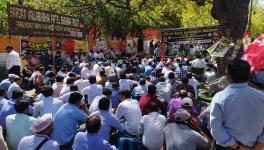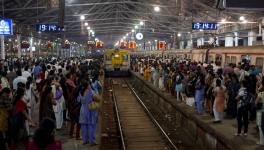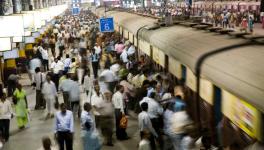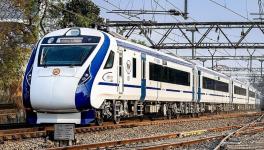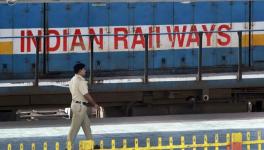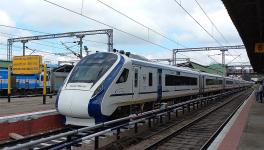Railways May Drop Trains with Low Occupancy, Reduce Stoppages Post-COVID
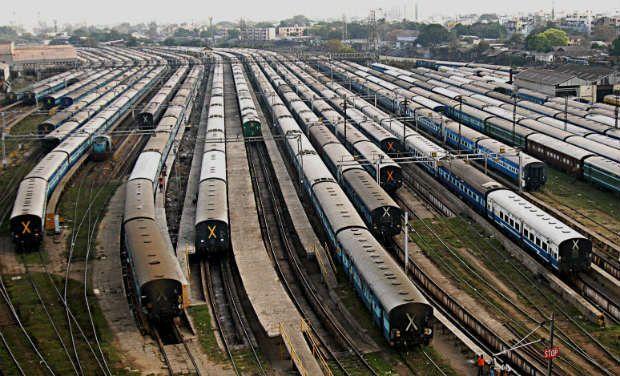
New Delhi: In a major paradigm shift, Indian Railways is exploring a new time table – Zero-Based -- with the aim to reduce the number of trains and stoppages post-COVID.
As the COVID-19 pandemic wreaks havoc across the globe by affecting life and disintegrating economic activities, the state-run transporter has been equally hit with low passenger and freight business. India had the sixth largest number of COVID-19 cases – over 2 lakh -- till Saturday morning.
With the Centre announcing a graded phasing out of the countrywide lockdown, and the economy sputtering back to life, Indian Railways is also gearing up to return to normality.However, the passenger business will not be the same again as a multi-disciplinary team involving senior railway officials and the Operation Research wing of IIT Mumbai is working out details to devise a Zero-Based Time Table on the rail network.
"There is a need to attempt an efficient time table in the new paradigm post-COVID," a Railway directive issued to the directorate concerned stated.
According to the plan under consideration, trains having less than 50% and stations that have very low ticket sales are likely to be dropped in the Zero-Based Time Table.
A Zero-Based Time Table means a complete new time table. Every year the Railways has new time table, which is mostly a repetition of the previous one with some changes here and there, plus accommodating of new trains and stoppages.
In the new time table, many trains and stoppages, found to be commercially not viable, are expected to be eliminated. The Railways maintain that dropping ‘unviable’ trains and stoppages would increase operational efficiency.
There were about 2,200 Mail/Express trains besides Rajdhani, Duronto, Shatabdi and Vande Bharat services operational before the COVID-19 outbreak. Currently, about 200 mail/express and 30 AC trains are running as special trains besides Shramik Specials during the lockdown.
After COVID crisis, regular train services will not be the same as before, according to sources close to the development. They said this would require a need-based fresh time table with less number of trains and stoppages.
Incidentally, the letter addressed to the directorate concerned mentions "Review stoppages", and the "need for identifying passenger and freight corridors and maintenance corridor.
There are many trains that have low occupancy rates as well as stations where passenger footfalls are negligible. For instance, if a train running on a particular route stops at 10 stations and some of these do not have adequate passengers, then those stoppages are likely to be dropped.
Similarly if a particular train has a low occupancy rate or the rate of return is less than the minimum requirement, then it will be discontinued in the new time table.
However, this would be tough to implement, as cancelling of train services and eliminating stoppages are sure to face stiff political opposition, sources said.
While many stoppages and train services are operational due to the political considerations as also social obligation, the Railways has been constantly avoiding this issue despite facing mounting losses, as it fears a political backlash.
Now, with coronavirus scare reigning supreme, the public transporter seems to have found an opportunity to put in place a process to chart out a practical course of action.
Hence, a massive exercise is on to review train occupancy and stoppages to finalise the new time table.
Though the earlier plan was to complete the exercise before June 30 so that a fresh time table is in force from July, there are possibilities of delay.
Since the Railway passenger business is incurring heavy losses and is cross-subsidised from freight profit, the pruning exercise is expected to be carried out to cater to market forces.
Amid the lockdown, Railway freight earnings saw a shortfall of Rs 8,283 crore compared with the corresponding period last year. Except foodgrain, other goods carried were much lower than the last year.
Also, as there are no regular passenger services right now, barring Shramik and AC specials in April and May, passenger revenue is also down by around Rs 9,000 crore.
Meanwhile, the public transporter is in the process of reviving some services in phases. While freight and parcel services are on, more passenger-carrying trains are expected to be run across the country as special trains, besides Shramik Specials.
However, one may have to wait a bit longer for regular train services, which are not likely to resume before September-October.
The writer is a freelance journalist based in Delhi and has been covering Indian Railways.
Get the latest reports & analysis with people's perspective on Protests, movements & deep analytical videos, discussions of the current affairs in your Telegram app. Subscribe to NewsClick's Telegram channel & get Real-Time updates on stories, as they get published on our website.









